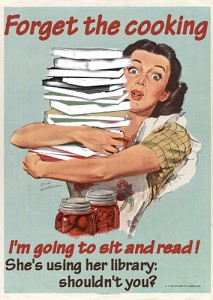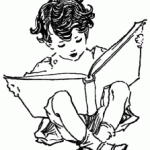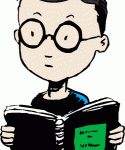 You know the one: the social situation with people milling about, being polite. Someone asks you what you do. You tell them you write. Then they ask what sort of thing. You explain you’re a children’s writer. At this point, you may be asked what you’ve had published – or if it’s someone feeling clued up, who’s your target audience?
You know the one: the social situation with people milling about, being polite. Someone asks you what you do. You tell them you write. Then they ask what sort of thing. You explain you’re a children’s writer. At this point, you may be asked what you’ve had published – or if it’s someone feeling clued up, who’s your target audience?
It’s then I translate their question into the one I want to answer – like a politician. What I hear is ‘Who am I writing for?’ My immediate response is me. There’s an element of ‘you can’t please everyone…’ in there, and the child inside. I write the books I wish someone had written for me.
Then, of course, come the second thoughts. A nasty little Imp of Doubt asks whether modern children could possibly have any interest in my concerns. I bat it away with the assertion that adults’ needs and desires haven’t change over millennia – and neither have children’s.
My third thoughts bring me back to the original question about ‘target audience’.
I don’t have one.
Chasing trends, thinking about demographics and responding to focus groups is SEP* as far as I’m concerned. Perhaps it’s arrogant, but I think my calling is to tell this one story as well as I can.
And what I see, who I am writing this book for, is a boy (I have three sons). He is boy fascinated by the sea. He is a boy who wonders if there’s some truth in myths and legends. He is a boy who half-sees things in grungy corners, who wants to escape into another world. He thinks the ’60s were cool.
I hope he’s out there – him and his mates.
*Someone Else’s Problem






